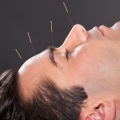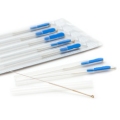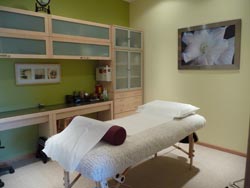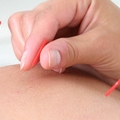 Acupuncture is an effective form of health care that has evolved into a complete and holistic medicalsystem. Practitioners of acupuncture and Chinese medicine have used this noninvasive medical system to diagnose and help millions of people get well and stay healthy.
Acupuncture is an effective form of health care that has evolved into a complete and holistic medicalsystem. Practitioners of acupuncture and Chinese medicine have used this noninvasive medical system to diagnose and help millions of people get well and stay healthy.
An acupuncturist will place fine, sterile needles at specific points on the body. This activates the body's Qi and promotes natural healing by enhancing recuperative power, immunity, physical and emotional health. It is a safe, painless and effective way to treat a wide variety of medical problems.
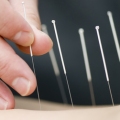 During the initial exam a full health history will be taken. Questions will be asked regarding symptoms, health and lifestyle. Your acupuncturist will also
check pulses and your tongue and conduct a physical exam. This information is then organized to create a complete, accurate and comprehesive
diagnosis of where Qi has become blocked or unbalanced. After the interview process, you may want to receive an acupuncture treatment. Visits with your acupuncurist may last from 30 to 90 minutes.
During the initial exam a full health history will be taken. Questions will be asked regarding symptoms, health and lifestyle. Your acupuncturist will also
check pulses and your tongue and conduct a physical exam. This information is then organized to create a complete, accurate and comprehesive
diagnosis of where Qi has become blocked or unbalanced. After the interview process, you may want to receive an acupuncture treatment. Visits with your acupuncurist may last from 30 to 90 minutes.
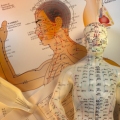 The number of treatments willl vary from person to person. Some people experience immediate relief, others may take longer to achieve results. Chronic conditions usually take longer to resolve than acute ones.
The number of treatments willl vary from person to person. Some people experience immediate relief, others may take longer to achieve results. Chronic conditions usually take longer to resolve than acute ones.
Treament frequently depends on a variety of factors: your constitution, the severity and duration of the problem, and the quality and quantity of your Qi.
An acupuncturist may suggest one or two treatments per week, monthy visits for health maintenance or seasonal "tune ups".
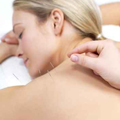 · Wear loose, comforable clothing for easy access to acupuncture points.
· Wear loose, comforable clothing for easy access to acupuncture points.
· Don't eat large meals just before or after your visit, but do not come on an empty stomach.
· Between visits, take notes of any changes that may have occurred, such as the alleviation of pain, pain moving to other areas, or changes in the frequency and type of problems.
· Avoid stressfull situations. Make time to relax and get plenty of rest.
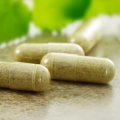 Herbs can be powerful adjunct to acupuncture care. They can be use to strengthen, build and support the body. They can also rid excess problems like a cold, fever or acute pain. Your practioner may even suggest starting with herbs and then adding acupuncture to your treatment in the future. This is suggested to build up your internal strength so you can receive the full benefits acupuncture has to offer.
Herbs can be powerful adjunct to acupuncture care. They can be use to strengthen, build and support the body. They can also rid excess problems like a cold, fever or acute pain. Your practioner may even suggest starting with herbs and then adding acupuncture to your treatment in the future. This is suggested to build up your internal strength so you can receive the full benefits acupuncture has to offer.
Acupunture is recoginized by the National Institutes of Health (NIH) and the World Health Organization (WHO) as effective in treating these conditions.
|
· Anxiety · Arthritis · Asthma · Bronchitis · Carpal tunnel Syndrome · Chronic fatigue · Colitis · Common cold · Constipation · Dental pain · Depression · Diarrhea · Digestive troule · Dizziness · Dysentery · Emotional problems · Eye problems |
· Facial palsy/tics · Fatigue · Fertility · Fibromyalgia · Gingivitis · Headache · Hiccough · Incontinence · Indigestion · Irritable bowel syndrome · Low back pain · Menopause · Menstrual irregularties · Migraine · Morning sickness · Nausea · Osteoarthritis |
· Pain · PMS · Pneumonia · Reproductive problems · Rhinitis · Sciatica · Seasonal affective disorder (SAD) · Shoulder pain · Sinusitis · Sleep disurbances · Smoking cessation · Sore throat · Stress · Tennis elbow · Trigeminal neuralgia · Vomiting · Wrist pain |
 At the core of this acient medicine is the philosphy that Qi (pronounced "chee"), or Life Energy, flows throughout the body. Qi helps to animate the body and protect it from illness, pain and disease. A person's health is influenced by the quality, quanitity and balance of Qi.
At the core of this acient medicine is the philosphy that Qi (pronounced "chee"), or Life Energy, flows throughout the body. Qi helps to animate the body and protect it from illness, pain and disease. A person's health is influenced by the quality, quanitity and balance of Qi.
Qi circulates through specific pathways called meridians. There are 14 main meridian pathways through out the body, each is connected to specific organs and glands. Meridian pathways are like rivers. Where a river flows, it transports life-giving water that nourishes the land, plants and people. In the same way, meridian pathways transport life giving Qi to nourish and energize every cell, organ, gland, tissue and muscle.
When Qi flows freely through out the body, one enjoys good physical, mental and emotional well-being. An obstruction of Qi anywhere in the body is like a dam, backing up the flow in one area and restricting it in others. This blockage can hinder the distribution of the nourishment that the body requires to funcion optimally.
FAQ
About Us
- Harry J. Johnson

